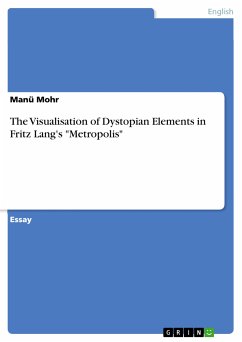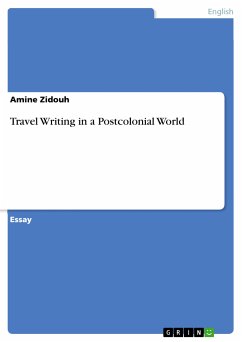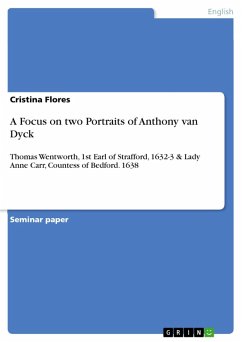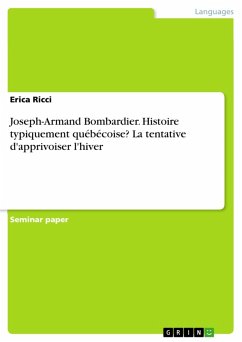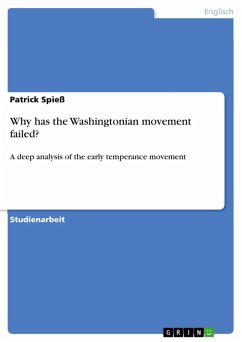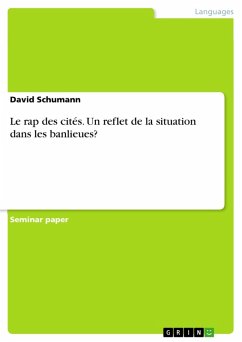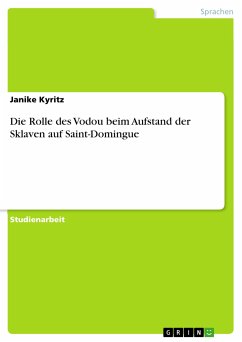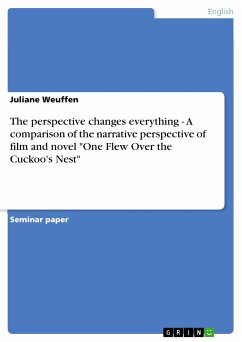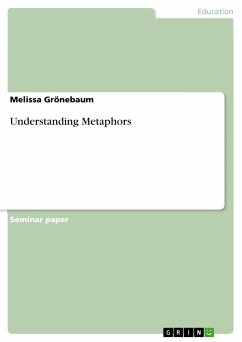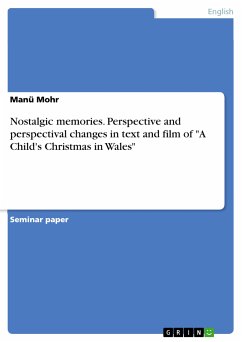
Nostalgic memories. Perspective and perspectival changes in text and film of "A Child's Christmas in Wales" (eBook, PDF)
Sofort per Download lieferbar
Statt: 17,95 €**
13,99 €
inkl. MwSt. und vom Verlag festgesetzt.
**Preis der gedruckten Ausgabe (Broschiertes Buch)
Alle Infos zum eBook verschenkenWeitere Ausgaben:

PAYBACK Punkte
0 °P sammeln!
Seminar paper from the year 2013 in the subject English Language and Literature Studies - Culture and Applied Geography, grade: 1,5, University of Stuttgart, course: Cultural Seminar, language: English, abstract: "Christmas... that magic blanket that wraps itself about us, that something so intangible that it is like a fragrance. It may weave a spell of nostalgia. Christmas may be a day of feasting, or of prayer, but always it will be a day of remembrance, a day in which we think of everything we have ever loved." This quote by Augusta E. Rundel illustrates so well the innermost feelings of th...
Seminar paper from the year 2013 in the subject English Language and Literature Studies - Culture and Applied Geography, grade: 1,5, University of Stuttgart, course: Cultural Seminar, language: English, abstract: "Christmas... that magic blanket that wraps itself about us, that something so intangible that it is like a fragrance. It may weave a spell of nostalgia. Christmas may be a day of feasting, or of prayer, but always it will be a day of remembrance, a day in which we think of everything we have ever loved." This quote by Augusta E. Rundel illustrates so well the innermost feelings of the speaker in Dylan Thomas' A Child's Christmas in Wales, who reminisces about the most beautiful time of the year he passed with family and friends. However, he does not just recount facts in an emotionally detached way; and it is the aim of this term paper to analyze the confounding of the adult and the child speaker, that is, the former being entirely plunged in his memories surrounding him "like a fragrance", he seems to actually be the child he was, reliving some scenes again. First of all, after having given some information about the text version of Thomas' work, I will introduce Gérard Genette's theory of narratology, and mainly focus on the distinction between narration and focalization. This subtle difference, as well as other terminology referring to the question of perspective, is very enriching, as it permits to localize the narrator's point of view and involvement, to understand the story's organization, and eventually, to reflect on the how and why of the blurring of boundaries between the adult speaker of the here and now (at the moment of speaking), and the child speaker experiencing the events. I will argue that those two are intertwined, with several gradations more or less explicit in text and film. Next, the way of narrating, the style, and linguistic issues will be examined, in order to attribute certain expressions or sentence structures either rather to the adult, or to the child. Of course it is not always possible to draw a clear-cut line, but nevertheless, there are passages which I believe to be revealing when arguing in favor of a perspective. It is crucial not to forget that the latter does not stay static, but that we can detect shifts of position throughout the story. This gives reason to dwell on some scenes in further detail. The second part of my work will deal with the film A Child's Christmas in Wales. As above, I will begin with some general remarks; then I would like to investigate the impact of the camera position because a stage director, by means of making different choices concerning distance, or angle of vision, can influence the spe.
Dieser Download kann aus rechtlichen Gründen nur mit Rechnungsadresse in A, B, BG, CY, CZ, D, DK, EW, E, FIN, F, GR, HR, H, IRL, I, LT, L, LR, M, NL, PL, P, R, S, SLO, SK ausgeliefert werden.




